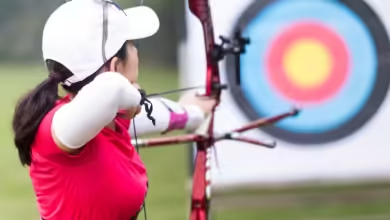Understanding “Utanmaz Türklere”: Unpacking a Cultural Phenomenon

The idea of “utanmaz türklere” holds a completely unique area within Turkish culture, frequently invoking quite a number feelings from frustration to fascination. Loosely translated, “utanmaz türklere” refers to the perception of shamelessness or brazen behavior among a few individuals within Turkish society. This long-form blog submit goals to delve into the historical and cultural importance of “utanmaz türklere,” exploring its mental underpinnings, social impacts, and techniques for coping with such behaviors.
Historical and Cultural Significance
The Roots of “Utanmaz Türklere”
To truely recognize “utanmaz türklere,” one ought to first discover its roots. The time period itself is a compound of “utanmaz,” which means shameless, and “Türkler,” that means Turks. Historically, the idea of disgrace has performed a pivotal position in Turkish social norms, deeply influencing how people interact inside the community. Traditional Turkish tradition locations giant emphasis on virtues which include modesty, appreciate, and honor.
However, as with every society, counter-narratives emerge. “Utanmaz türklere” highlights those who flout these social norms, regularly acting in approaches that are considered socially beside the point or disrespectful. This behavior can be traced lower back to various factors, together with socio-financial changes, globalization, and shifts in cultural values.
Evolution Over Time
The perception of “utanmaz türklere” has advanced over the years. In earlier eras, such behavior turned into harshly criticized and unexpectedly addressed by the community. With the appearance of modernity and globalization, the boundaries of proper conduct have elevated, leading to greater times of perceived shamelessness. This shift increases questions on the balance between conventional values and cutting-edge freedoms.
The Psychology of “Utanmaz Türklere”
Behavioral Characteristics
Understanding the psychology behind “utanmaz türklere” entails examining the behaviors typically associated with it. These may additionally encompass:
- Disregard for social etiquette or norms
- Overstepping personal boundaries
- Lack of empathy or consideration for others
- Engaging in deceitful or manipulative sports
Such behaviors often stem from underlying mental factors, together with a preference for attention, a lack of information, or even deeper character problems. Recognizing these trends can help in addressing the basis causes of the conduct.
Societal Triggers
What drives certain individuals to show off “utanmaz türklere” behaviors? Societal triggers play a essential position. In fantastically aggressive environments, the strain to prevail or stand out can result in ethically questionable movements. Additionally, societal adjustments including urbanization and accelerated anonymity in big towns can make contributions to the erosion of conventional social norms, making room for extra brazen behaviors.
Impact on Social Dynamics
Personal Relationships
“Utanmaz türklere” can drastically effect private relationships. Trust and admire are foundational to any courting, and shameless conduct can erode those pillars. Friends, family participants, and partners might also locate it tough to hold wholesome relationships with individuals exhibiting such traits, leading to conflicts and estrangement.
Community Trust
On a broader scale, “utanmaz türklere” impacts network agree with. Societies thrive on mutual admire and shared values. When people consistently act in self-serving or disrespectful ways, it undermines the brotherly love and trust in the community. This can bring about social fragmentation and a fashionable decline in the high-quality of communal lifestyles.
Strategies for Addressing “Utanmaz Türklere”

Personal Approaches
Dealing with “utanmaz türklere” conduct calls for tact and resilience. Here are a few strategies for personal interactions:
- Set Boundaries: Clearly define what behaviors are unacceptable and communicate those limitations assertively.
- Seek Understanding: Attempt to understand the motivations behind the behavior. Empathy can occasionally pave the way for positive communicate.
- Limit Engagement: In instances wherein the conduct is specifically harmful, it may be necessary to limit touch with the person.
Professional Settings
In professional environments, managing “utanmaz türklere” behavior is important for preserving a healthful paintings lifestyle. Consider these procedures:
- Implement Clear Policies: Establish and put into effect regulations that outline appropriate behavior and outcomes for violations.
- Foster a Respectful Culture: Promote values of admire and integrity thru training and leadership example.
- Address Issues Promptly: Tackle complex behaviors early to prevent escalation and preserve a advantageous paintings environment.
The Role of Community Efforts
Collective Responsibility
Communities have a role to play in addressing “utanmaz türklere.” Collective efforts can improve social norms and discourage shameless conduct. Community leaders and influencers can utilize their structures to recommend for respectful behavior and highlight the significance of traditional values.
Educational Initiatives
Educational initiatives aimed at selling emotional intelligence, empathy, and social responsibility can be effective. Schools, network facilities, and companies can offer workshops and applications that train these essential existence competencies, fostering a culture of admire from a young age.
Conclusion
“Utanmaz türklere” is extra than just a time period; it’s miles a mirrored image of the ongoing anxiety between conventional values and modern freedoms within Turkish society. By knowledge its historical context, mental roots, and social affects, we will better cope with and mitigate the behaviors associated with it. Through non-public strategies, professional processes, and community efforts, it is viable to foster a lifestyle of appreciate, empathy, and integrity.



